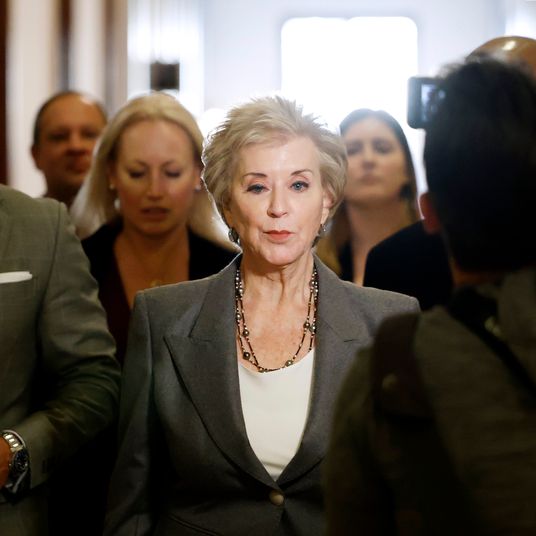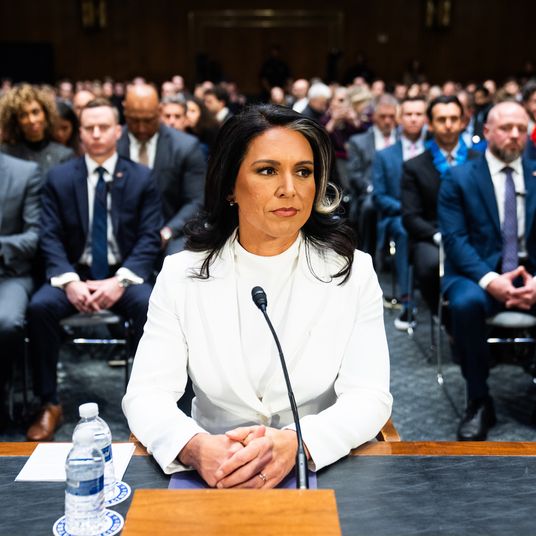Netflix’s stock has been a juggernaut this past year. Between the terror it’s inspiring in the hearts of movie and TV execs, rapid adoption of its streaming service, and the amount of Internet bandwidth it’s been sucking up, Netflix’s stock has made the steep climb from a low of $49.13 in February to a dizzying high of $207.39 yesterday. At around the $200 mark, that pushed the company’s value to more than $10.4 billion, joining the ranks of the Googles, Apples, and Berkshire Hathaways of the public market. But ZeroHedge’s Tyler Durden (a pseudonym) thinks the fact that Netflix’s chief financial officer, Barry McCarthy, sold 100,000 shares back in early November is a sign that Netflix might be “the world’s most overpriced stock.” Insider stock sales are very common. But it did happen before the price took a downward slant today, currently trading at $193.42. Did McCarthy know something we don’t? If Netflix’s rise seems so unstoppable, what does it mean that its stock just went down?
At today’s SAI Ignition “Future of Media” conference (solid eggplant milanese wrap at the lunch buffet, by the way), panel discussions turned back over and over to Netflix’s business model, which nimbly transitioned from a mail-order company into paid Internet streaming. But predictions about its future were mixed.
Avner Ronen — whose start-up Boxee lets you watch Internet videos on your TV and has been a disrupting presence for cable companies and Hulu alike — said onstage that “Netflix is going to have more paid video subscribers in two years than Comcast.” Companies that try to stop viewers from watching programming when and where they want should know that “resistance is futile,” added Ronen, referring to Comcast’s recent backdoor attempt to levy fees on Netflix for clogging up the Internet.
Meanwhile, both Hulu’s Jason Kilar, a direct Netflix competitor, as well as Time Warner’s Olaf Olafsson (not a pseudonym!) both pointed out that content costs money — expressing skepticism that Netflix’s new $7.99 streaming-only plan would generate enough revenue to pay for the good stuff. Early on, said Olafsson, Netflix might have taken advantage of “dislocation of the licensing machine.” But cable companies and TV networks would not be so obliging going forward.
Indeed, the Post reported today that Netflix was in talks with studios to get access to current episodes of prime-time shows and is willing to pay between $70,000 and $100,000 per episode. Olafsson said the cost was more like $1 million. Netflix’s recent shopping spree, picking up deals with FilmDistrict and Starz, might have been easy. But next-day or same-week run of prime-time shows are where the big advertising dollars lie, which is why you have last season’s 30 Rock on Watch Instant, but not this year’s. Hulu has that stuff, but it’s backed by the major networks. If Netflix is going for that cash cow, it’s going to run into the same problems as Google TV.
According to PaidContent, the people who own the programming are now looking at Netflix with “regret.” The deals they’ve done already “have given rise to a new competitor.” Whether it’s extending the window before it can stream certain programs or charging extortionate renewal fees for deals it already has in place, companies like Starz are “going to try to weaken [Netflix] at every turn in the coming year.” But with an addicted mob of subscribers behind it, Netflix’s likely to put up its own fight.
Netflix CFO Dumps 100,000 Shares Over $200, Has Just 51,563 Shares Left [ZeroHedge]
Why Netflix Won’t Get What It Wants Most For Christmas [PaidContent]





























